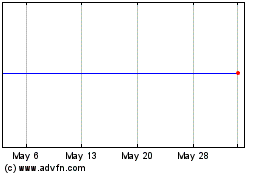Amylin Pharmaceuticals Initiates Phase 2B Dose-Ranging Clinical Study of Pramlintide/Metreleptin Combination Treatment in Obesit
May 05 2008 - 5:00PM
PR Newswire (US)
Preclinical findings of amylin/leptin synergy and translational
Phase 2A clinical results published online today in Proceedings of
the National Academy of Sciences of the United States of America
SAN DIEGO, May 5 /PRNewswire-FirstCall/ -- Amylin Pharmaceuticals,
Inc. (NASDAQ:AMLN) today announced the initiation of a Phase 2B
clinical study evaluating various dosing combinations of
pramlintide, an analog of the natural hormone amylin, and
recombinant human leptin (r-metHuLeptin; metreleptin) for the
treatment of obesity. The objective of this dose-ranging study is
to support dose selection for Phase 3, and to inform the ongoing
development of a convenient delivery system for this combination
regimen. The six-month, randomized, double-blind,
placebo-controlled multi-center study will enroll approximately 600
overweight and obese subjects and is expected to complete in
mid-2009. "There is a tremendous medical need and market demand for
a weight loss product that meets both safety and efficacy
expectations of patients and physicians, and we believe that our
integrated neurohormonal approach to obesity holds great promise
for achieving this profile," stated Christian Weyer, M.D., Vice
President of Clinical Research, Amylin Pharmaceuticals. "Building
upon the positive results of our translational research program
published today in PNAS, and the extensive clinical experience with
both pramlintide and metreleptin as monotherapies, the newly
initiated Phase 2B study will bring us one step closer to our goal
of offering obese individuals a safe and effective therapy that
results in meaningful weight loss." The Phase 2B study will include
a broad range of overweight and obese subjects (body mass index 27
to 45 kg/m2) and will compare various pramlintide/metreleptin
combination regimens with each compound alone and with placebo.
PNAS Publication Also today, comprehensive preclinical findings of
amylin/leptin synergy, along with positive results of a
translational Phase 2A clinical study were published online in
PNAS, Proceedings of the National Academy of Sciences of the United
States of America, in a scientific paper entitled, "Leptin
Responsiveness Restored by Amylin Agonism in Diet-Induced Obesity:
Evidence from Non-Clinical and Clinical Studies." "Leptin is a
fundamentally important hormone in energy metabolism with a unique
role in inducing fat-specific weight loss and in preventing weight
loss counterregulation," remarked Steven Smith, M.D., Professor and
Assistant Associate Director of Clinical Research, Endocrinology
Laboratory at the Pennington Biomedical Research Center. "The
intriguing and important findings published today constitute a
strong scientific basis for the development of peptide hormone
combinations, and provide renewed hope of harnessing the
therapeutic potential of leptin as part of an integrated
neurohormonal approach to obesity pharmacotherapy." The scientific
studies included in the PNAS publication provide preclinical and
clinical evidence that leptin responsiveness is at least partially
restored by amylin agonism. In several independent experiments in
diet-induced obese rats, co-administration of amylin, together with
leptin, resulted in synergistic reductions in food intake (up to
45%) and body weight (up to 15%), effects considerably greater than
with leptin or amylin treatment alone. Importantly, weight loss
with amylin/leptin treatment was fat-specific, and not accompanied
by a reduction in lean mass. Neurohistological studies provided
important insights into the neurobiological basis of amylin/leptin
synergy. Finally, the translational clinical research confirmed
that findings in the non-clinical experiments are relevant to human
obesity and suggest that metreleptin may be an effective partner to
pramlintide in the treatment of obesity. The full paper, published
in the May 5, 2008 early edition of PNAS, is available online at
http://www.pnas.org/. PNAS is one of the world's most prestigious
multidisciplinary scientific journals. About Obesity Obesity is a
chronic disorder that affects millions of people and is linked to
increased health risk of several medical conditions including type
2 diabetes, high blood pressure, heart disease, stroke,
osteoarthritis, sleep disorders and several types of cancers.
According to The Obesity Society, obesity is the second leading
cause of preventable death in the United States. The total direct
and indirect cost attributed to overweight and obesity health
issues exceeds $100 billion in the United States each year. Obesity
is also rapidly becoming a major health problem in all
industrialized nations and many developing countries. Amylin's
Approach to Obesity Research and Development Physicians and
patients seeking prescription medications for weight loss have
limited therapeutic options. New scientific advances have
established the key role of neurohormones in regulating appetite
and energy balance, as well as the importance of studying the
interaction among these hormones (within the brain) to uncover
their full therapeutic potential. Amylin scientists discovered that
combination treatment with neurohormones such as amylin and leptin
can produce additive and synergistic weight loss in animal models.
These findings formed the basis for Amylin's innovative integrated
neurohormonal approach to the development of obesity treatments.
About Pramlintide and Metreleptin Pramlintide is a synthetic analog
of amylin, a neurohormone secreted by the pancreas that is known to
play a role in the regulation of appetite, food intake and
postprandial glucose concentrations. Pramlintide is the active
ingredient in SYMLIN(R) (pramlintide acetate) injection, which is
indicated for use by patients with type 1 and type 2 diabetes who
use mealtime insulin. Since launch, over 80,000 patients have been
exposed to SYMLIN. To date, more than 6,000 individuals have
received pramlintide in clinical trials, including more than 800 in
obesity studies. In previous clinical studies, obese subjects
treated with pramlintide 360 micrograms twice daily for 1 year
experienced an average weight loss of approximately 8 percent from
baseline compared with a 1 percent weight loss in patients
receiving placebo. The most common side effect observed with
pramlintide treatment in previous obesity studies was mild,
transient nausea. Metreleptin (methionyl recombinant leptin;
r-metHuLeptin) is an analog of human leptin, a neurohormone
secreted by fat cells that plays a fundamental role in the
regulation of energy metabolism and body weight. Amylin acquired
exclusive rights to the leptin molecular franchise and clinical
program in 2006. To date, more than 1,000 individuals have received
metreleptin in clinical trials, several hundred of which were obese
and treated for 16 weeks or more. In multiple previous human
clinical trials with metreleptin treatment alone, minimal weight
loss was observed. This observation is consistent with findings in
diet-induced obese rats, and suggests the presence of leptin
resistance. In contrast, and consistent with findings in ob/ob
(leptin deficient) mice, long-term treatment with metreleptin has
been shown to elicit profound, fat-specific weight loss in severely
obese individuals who are rendered leptin deficient by rare genetic
mutations of the leptin gene. The most common side effect observed
with metreleptin treatment in previous obesity studies was
injection site adverse events. About Amylin Pharmaceuticals Amylin
Pharmaceuticals is a biopharmaceutical company committed to
improving lives through the discovery, development and
commercialization of innovative medicines. Amylin has developed and
gained approval for two first-in-class medicines for diabetes,
SYMLIN(R) (pramlintide acetate) injection and BYETTA(R) (exenatide)
injection. Amylin's research and development activities leverage
the company's expertise in metabolism to develop potential
therapies to treat diabetes and obesity. Amylin is headquartered in
San Diego, California with over 1,900 employees nationwide. Further
information on Amylin Pharmaceuticals is available at
http://www.amylin.com/. This press release contains forward-looking
statements about Amylin, which involve risks and uncertainties. The
Company's actual results could differ materially from those
discussed due to a number of risks and uncertainties, including
that our clinical trials may not start when planned and/or confirm
previous results; our preclinical studies may not be predictive;
our product candidates may not receive regulatory approval; and
inherent scientific, regulatory and other risks in the drug
development and commercialization process. These and additional
risks and uncertainties are described more fully in the Company's
most recently filed SEC documents, including its Form 10-Q. Amylin
undertakes no duty to update these forward-looking statements.
DATASOURCE: Amylin Pharmaceuticals, Inc. CONTACT: Anne Erickson of
Amylin, +1-858-754-4443, ; or Rachel Martin of Edelman,
+1-323-202-1031, or cell, +1-323-373-5556, , for Amylin Web site:
http://www.amylin.com/
Copyright
Amylin Pharmaceuticals, Inc. (MM) (NASDAQ:AMLN)
Historical Stock Chart
From Jun 2024 to Jul 2024

Amylin Pharmaceuticals, Inc. (MM) (NASDAQ:AMLN)
Historical Stock Chart
From Jul 2023 to Jul 2024
